Posts Tagged ‘Dementia Action Alliance’
Share Your Creative Arts Endeavors: An Opportunity for People who are Living with Dementia
I am honored to be part of the Arts Work Group at the Dementia Action Alliance, which is one of my favorite non-profits. Please share this information with those who might benefit. Warmly, Deborah
Dementia Action AllianceDementia Arts Fest 2019
Mike Belleville, 2018
The Dementia Arts Fest celebrates art made by persons living with dementia!
Call for Entries Deadline March 15, 2019
If you are a person living with dementia who engages in creative projects or you’re the leader of a creativity program for people living with dementia, we want to hear from you! You are invited to submit up to 3 pieces of art, ready to display – It’s an easy process to submit. This is what we need:
1. Photos of the artwork in JPEG, PDF, or PNG format. Label each image with your last name, the title.
2. A separate page:
Your name (artist’s name) and contact information.
List of your work with titles, dimensions, and media
3. Write down a brief description about how creating art impacts you and makes you feel. (around 200 words)
5. Email the above information to Karen Love at karenlove4@verizon.net.
Please let us know if you are submitting artwork on behalf of someone else.
Sale of Artwork
▪ Artwork accepted for the exhibition may be for sale, or may be marked as ‘NFS’ (not for sale). If the artwork is NFS, artists must include a prepaid return shipment label for UPS or Federal Express with their artwork shipment.
▪ If the artist’s work is sold, the Dementia Action Alliance [a 501(c)(3) charity] will receive 50% of the retail price set by the artist as a contribution.About the Dementia Action AllianceThe Dementia Action Alliance is a national non-profit organization of people living with dementia, care partners, dementia specialists and others making our nation a better place in which to live with dementia. www.daanow.org
Deborah Shouse is the author of Connecting in the Land of Dementia: Creative Activities to Explore Together and Love in the Land of Dementia: Finding Hope in the Caregiver’s Journey.
Moving from Depression to Purpose: Wisdom from Dementia Advocate and Mentor Robert Bowles, Jr.
Once again, Robert Bowles, Jr., age 65, could not sleep. Since he’d been diagnosed with Lewy Body Dementia two years ago, his nights had randomly been plagued with terrifying hallucinations and vivid nightmares that he often acted out. He was exhausted, depressed, and anxious. Plus, he had had to sell his beloved pharmacy and prematurely end a meaningful 40-year career as the community’s trusted pharmacist.
That dismal night, Robert awoke at 1:00 a.m. and dragged himself into his office. He felt a horrible heaviness in his heart
and he cried out to God.
“God,” he said, “Take me home. I don’t want my family to go through this disease. I can’t endure this any longer.”
As he sank into a chair, he heard a voice, as strong and clear as if someone was sitting right beside him: “Use your five life principles for people who are living with dementia.”
Robert slapped his hand onto his forehead and said to himself, “God is not through with me yet.”
And that realization filled him with hope.
Amending His Purpose: The Five Principles
Love, care, education, encouragement, and hope: these were the principles Robert adhered to with his work, his family, and in his community.
“Understanding that those same tenets could help families affected by dementia was a transformational experience that gave me purpose,” he says.
Robert believes, “People living with dementia need to be encouraged to maintain purpose. While your original purpose may not be possible, you can always modify your vision and continue to live with depth and meaning.”
Throughout his career, Robert was always purpose-driven and outcome-oriented. Along with those qualities, he infuses his current advocacy and mentoring work with compassion. Early on, he realized, “People don’t care what you know; they want to know what you care about.”
Standing up for Personhood
“I made a decision that I would not let dementia define who I was,” Robert says. “ I’m still Robert. I believe in personhood.”
He also believes in learning, overcoming fear, and trying new things. Robert serves on the Georgia Alzheimer’s and Related Dementias (GARD) State Plan Group. He is involved with the Lewy Body Dementia Association (LBDA) and works with the Dementia Action Alliance and the Dementia Spotlight Foundation. He qualified as a trainer at the Rosalyn Carter Institute and he completed the coursework to became a Certified Eden at Home Associate. Robert has also been trained in Dementia Beyond Drugs, which teaches ways to decrease behavioral expressions without medications.
Recently, a lady asked him, “How are you able to speak when you have dementia?”
Robert answered, “When I sit there waiting to speak, my mind is all over the place. I wonder, ‘Will I be able to speak, or is the train going to jump the track?’ Then I tell myself, “I am going to have fun.”
He has fun and he speaks from his heart. Audiences connect with him.
Recently, Robert told his neurologist, “I don’t have time to die.” Every year, he typically speaks to more than 100 groups, sharing his story, breaking down stereotypes, educating people on dementia, and inspiring people to live with heart and purpose. ##
 Practical Tips from Robert
Practical Tips from Robert
Adopt the ASAP philosophy: Acceptance, Socialization, Attitude, and Purpose. Accept your disease and know you are not your disease. Keep and expand your social network. Live with a positive attitude. Be fueled by a purpose. ASAP was one of the touchstones that delivered Robert from “the Valley of Darkness.” “Both care partners and people living with dementia benefit from ASAP concepts,” Robert says.
Prepare for your doctor’s visits. As a practicing pharmacist, Robert noticed many people did not prepare for medical visits and therefore didn’t get the information they most needed. He keeps a list of his symptoms. As changes occur, write them down. Before the visit, select your top three issues. Hand this list to the nurse to give to the doctor. “You save time and get better outcomes,” he says.
For more information about Robert, please visit:
https://lbdlivingbeyonddiagnosis.com/index.html
For more information about living well with dementia, please visit Dementia Action Alliance, https://daanow.org
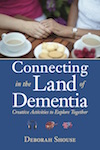
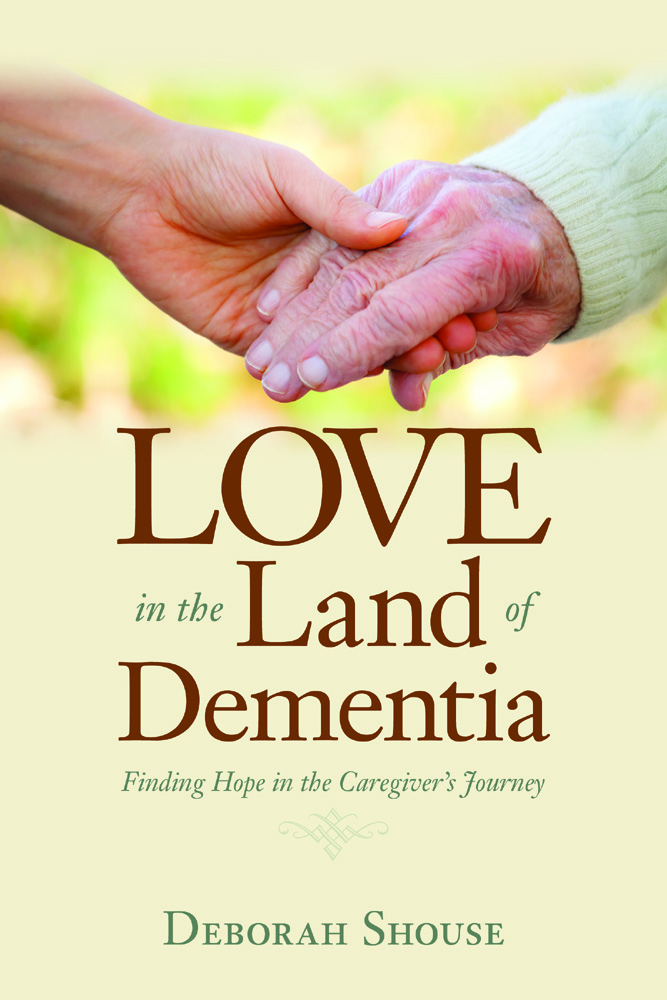
Embracing Person-Centered Dementia Values: The Dementia Action Alliance
One by one, we say hello via video conferencing. We are writers, artists, and arts advocates from all over the country. One sculptor enriches the visual aspects of our meeting by strolling through a museum, giving us occasional glimpses of vibrant art. We meet another artist’s dog. Via video, we see each other’s offices and learn each other’s names and goals. Some of the participants are living with dementia; some are not. All of us are brainstorming ways to use the arts as a catalyst to connect people. Already it is working: through the Dementia Action Alliance, our arts group is already engaging in deep and honest conversation, discussing ways to weave creativity and the arts through June’s conference in Atlanta, and exploring ways we can help others stay connected through the arts.
I have long admired the Dementia Action Alliance and feel honored to be part of their creative process. Their “Person-Centered Dementia Values and Principles” were inspired by the Pioneer Network and have been customized by people living with dementia. Karen Love, Executive Director of DAA, tells us, “Because people who have dementia are the experts, the values are written from their perspective in first person narrative. This orientation helps us focus on what is important.”
Here are some of their core ideas:
Person-Centered Dementia Values and Principles
• I am a person living with dementia. Spend time getting to know me and relating to me as a person with a unique background, life history, interests and capabilities.
• Help me stay connected to what is important to me. Although aspects of my personhood may become increasingly hidden, I am still here.
• A reciprocal relationship is important to me. Autonomy, choices, dignity, privacy, self-determination are fundamental to my well-being.
• Support my holistic emotional, social, physical, cultural, sexual, and spiritual dimensions.
• Promote my personal growth and development. Help me continue to experience purpose, meaning, relationships and enjoyment in my daily life.
• Partner with me, utilize my strengths, and provide the right amount of support and opportunities I need to achieve my goals.
• Some dementia symptoms may interfere with my communication. I communicate the best I can; assume positive intent. Attempt to understand my needs and my reality. Please be compassionate.
For me, reading these principles reminds me how much we are all alike.
For more information on this topic and to learn about the DAA’s upcoming conference:
Conference: Re-Imagine Life with Dementia
You’ll enjoy reading this white paper on Living with Dementia: Changing the Status Quo, DAA
Deborah Shouse is the author of Connecting in the Land of Dementia: Creative Activities to Explore Together and Love in the Land of Dementia: Finding Hope in the Caregiver’s Journey.
Live Well with Dementia: The Pygmalion Effect
“This is one of my favorite songs. What do you think of it, Fran?” We were sitting in Mom’s room in the memory care community, listening to a recording of The Very Thought of You. Even though my mother could no longer answer this question, I liked hearing my father ask it. He honored Mom as his long-time beloved conversational partner. Through this simple action, he was helping her live well with dementia. His example helped me do the same.
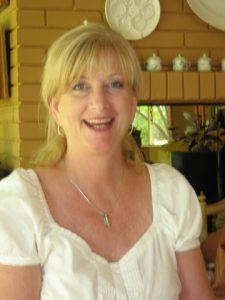 This article by Karen Love, Executive Director of Dementia Action Alliance, reminded me of my dad’s positive outlook. It inspired and touched me and I wanted to share it with you.
This article by Karen Love, Executive Director of Dementia Action Alliance, reminded me of my dad’s positive outlook. It inspired and touched me and I wanted to share it with you.
Live Well with Dementia
By Karen Love, DAA Executive Director
In 1968, Robert Rosenthal and Lenore Jacobson published groundbreaking research that showed teacher expectations of students became self-fulfilling prophecies. At the beginning of a school year, first and second grade students’ IQs were tested. The researchers randomly selected a group of students regardless of their actual test results and led the teachers to believe that this group was capable of great academic achievement. The teachers, perhaps unwittingly, gave the students with the presumed higher IQs more positive reinforcements.
At the end of the year, the students were retested. The group labeled high academic achievers did, in fact, show higher achievement than the other students. Robert Rosenthal summarized this research finding as – “What one person expects of another can come to serve as a self-fulfilling prophecy.” This outcome, retested and proven by many others over the years, has become widely known as the Pygmalion Effect.
The dynamics of the Pygmalion Effect have significant impact for those who want to live well with dementia. There is abundant anecdotal evidence among person-centered dementia care experts that the Pygmalion Effect similarly applies. Family, friends, and others may have low expectations regarding what people living with dementia can and cannot do and how they can function and live. While they may not even be consciously aware of this view, these lowered expectations affect every aspect of the relationship. They don’t engage, interact, and provide opportunities for interesting and fun activities at the same level they would if their expectations were higher.
I experienced the Pygmalion Effect this past week at a memory care assisted living community. I saw a resident sitting alone, apart from the others. I asked a staff member about her and was told she had very advanced dementia.
“What does she like to do?” I asked.
“Nothing, she can’t do anything.”
I knelt beside her and offered a small pillow covered in a soothing, tactile fabric. She immediately started stroking the pillow and then explored the seams. Her expression turned sweet and serene. Touching the fabric was comforting to her. As I was getting ready to leave, the woman’s daughter arrived. I introduced myself and described how much her mother enjoyed the tactile pillow.
“Mom was a seamstress and loves the feel of fabric,” her daughter said, smiling at her mother. “I should bring one of the lap quilts she made when I visit.”
Her daughter was reminded of something her mother liked to do and she felt grateful she could bring something that would please her mom.
I was reminded how important it is to have interesting and engaging items when we visit. Examples include scented lotion, a tactile pillow or fabric scraps, and an enjoyable short story to read aloud.
Helping someone live well with dementia invites us to open our eyes, our hearts, and change our mindset. Instead of perceiving limitations, we can spark the Pygmalion Effect by setting positive expectations. We can help make living fully with dementia a self-fulfilling prophecy.
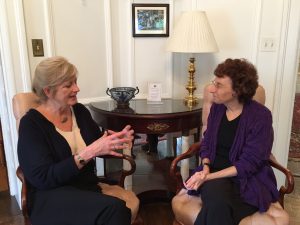 Karen Love, gerontologist – Executive Director, Dementia Action Alliance – Powered by People with Purpose
Karen Love, gerontologist – Executive Director, Dementia Action Alliance – Powered by People with Purpose
Deborah Shouse is the author of Connecting in the Land of Dementia: Creative Activities to Explore Together and Love in the Land of Dementia: Finding Hope in the Caregiver’s Journey.
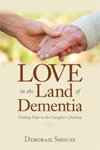

Inside Advocacy with Karen Love: Making a Difference for Those Living with Alzheimer’s
Alzheimer’s is a democratic disease and no one is immune. Movie stars, politicians, bankers, comedians, business moguls, professors, and homemakers– any one of us could face living with dementia. Karen Love is a founder of the Dementia Action Alliance, which focuses on improving dementia care for the more than five million Americans currently living with the condition. Karen works with governmental agencies to define and improve a person-centered standard of care for elders and for those living with dementia. She’s an inspiring leader and I wanted to share some of her insights with you.
Q and A
Q: What prompted you to form a non-profit and become an advocate for aging and for those living with dementia?
A: Advocacy must be in my DNA. Even as a girl, I was always sticking up for people and their rights. I initially worked as an administrator in assisted living and I became concerned about how fast the industry was growing without paying attention to the needs of its vulnerable residents, particularly those who had dementia. In 1996, I founded a non-profit organization, Consumer Consortium for Assisted Living (CCAL), to advocate for, support and educate consumers about assisted living. After a decade, we renamed the organization CCAL—Advancing Person-Centered Living, and we expanded our mission to encompass all elder care settings. We focused on promoting quality of life and person-centered practices.
Q: You’ve worked with Medicaid and Medicare to help define and implement a mind-set of person-centered care. What does person-centered care mean and why is it so important?
A: The World Health Organization and the Institute on Medicine recognize Person-Centered practices as the gold standard. Person-centered practices support people’s emotional, social, physical, and spiritual well being. They focus on treating people with dignity, fostering choice, independence, and feelings of purpose, value, and self-worth. These practices also help people maintain normalcy in their daily life. I’ve had the honor to help shape the person-centered framework for CMS’s home and community-based division, which support such state-based services as home care, adult day, and assisted living for individuals Medicaid eligible.
Q: You’ve now gathered thought leaders in the fields of aging and dementia, building a coalition of people dedicated to “making dementia better” in our country. What are some of your goals?
A: Our goals include:
- Enhance knowledge about dementia and person-centered care practices so people living with dementia are no longer stigmatized.
- Improve healthcare practitioners’ understanding and knowledge about dementia care, person-centered practices and treatment, and make sure materials are accessible.
- Share information with care partners and healthcare providers about the value of attending to emotional, social, and spiritual well being.
- Increase federal and state funding for dementia-care related support.
Q: What are some inspiring actions that ordinary caregivers or persons living with dementia have taken?
A: Just a couple of examples include:
- Michael Ellenbogen is a person who is living with dementia. Prior to being diagnosed, he was a high-level bank executive. He has become a tireless advocate and spokesperson for dementia.
- Lori La Bey started an online weekly radio program called “Alzheimer’s Speaks” to provide a venue for people to learn about dementia, share their experiences, and be supportive.
Q: What are three easy things each person can do to act as an advocate for those living with dementia?
A: Here are some suggestions:
- There are three ways things change nationally: (1) the President makes it happen (2) Congress makes it happen (3) the groundswell of people’s voices and actions make it happen. There has not been an interest for the first two methods. Historically, method 3 was effective for impacting and changing issues such as HIV/AIDS and breast cancer. The Dementia Action Alliance brings people together so we can be a catalyst for change.
- Words matter. Often people living with dementia, including Alzheimer’s, are called “patient,” “victim,” “demented,” and “sufferer” – and the condition is called a “dementing illness” and an “affliction.” This type of language can impact how people living with dementia feel about themselves and how they are treated by others. Print out “Use Words Wisely” from the website – www.daanow.org/words-matter/- and help educate others about what words to use.
- Email the Dementia Action Alliance at info@daanow.org about your interest in volunteering. Consider making a financial donation at www.daanow.org The more people involved in the Dementia Action Alliance, the sooner and greater the impact.
Please feel free to share this information with your friends and colleagues. The more we all work together, the more effective our voices will be.
Deborah Shouse is the author of Love in the Land of Dementia: Finding Hope in the Caregiver’s Journey.

